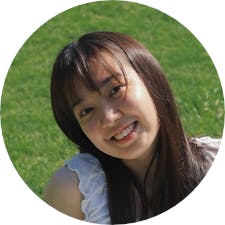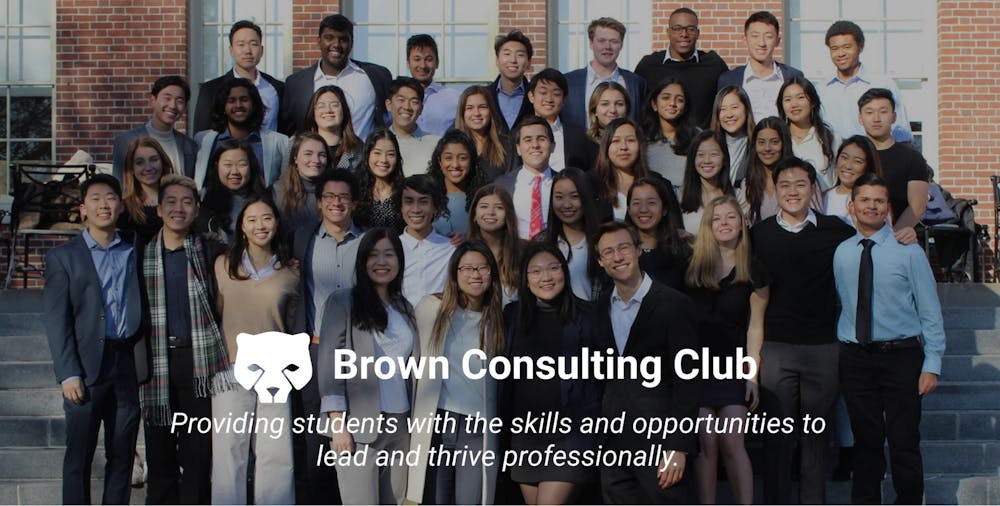When Michelle Lee ’23 first joined Brown Consulting Club, she “had no idea what consulting was,” she said. Now she is the president of the club.
BCC, which consists of 40 to 50 members each year, is made up of two subgroups: projects and committees. The former works with professional clients to solve business questions and the latter connects students “to consulting firms or mentors in the industry,” Lee said.
“Our projects (help students) figure out whether consulting is a fit for them, because they’re doing work that’s very similar to what a consultant would do,” Lee said. She added that the projects are “a good way for (students) to get skills ahead of time (such as) researching, communication, talking to clients, et cetera.”
Nasim Mohammadzadeh ’24 joined the projects team as a first-year and took on the position of marketing chair for two semesters before returning to the team this year. Mohammadzadeh said that the opportunity to be involved in consulting allowed her to explore different fields before settling on finance.
“If I didn’t have BCC and (the experience of) working on projects … I probably would still be in consulting, because I wouldn’t know that I (didn’t) like it as much as I liked finance,” Mohammadzadeh said.
Alec Green ’25 had a similar experience in the Brown chapter of 180 Degrees Consulting. The Brown chapter, which has around 35 members, is part of a global organization that focuses on collaborations with nonprofits across over 150 chapters, according to Emily Moini ’23, current co-president of 180 Degrees at Brown.
Green said he joined the club this semester after he felt unsure of his career path and heard positive feedback from friends and family. “I would say so far, my time in 180 (Degrees) has really cemented that (consulting) might be something I want to do in the future,” he said. He explained that club members receive “access to so many resources.”
The club conducted an internal survey in order to restructure the chapter and better serve its members, Moini said. The results of the survey indicated that members wanted a greater pre-professional focus and a greater impact on real-world nonprofit projects.
180 Degrees can offer “a great opportunity to learn about nonprofits and how the sector works, while also gaining this pre-professional experience,” she said.
Moini added that 180 Degrees has a global leadership program that provides guidance on their work, as well as “access to this broader ecosystem of resources.”
The Brown chapter of the Global Research and Consulting group — another international organization with a University branch — has access to a similar pool of resources, according to current GRC president Arushi Parekh ’24.
The global team “hosts a ton of different networking opportunities for GRC members to meet with each other from different schools (and) learn more about what consulting is,” she said.
With 45 to 50 members, GRC has two branches: the consultant team and a student-run think tank called “Insight,” which produces articles on social issues and publishes them on its website.
Connecting students with resources
Even though Mohammadzadeh does not currently plan to go into consulting, she said that BCC has taught her more about the interview process and working with professionals.
Lee said that BCC brings “different firms in to host info sessions or panels to go over what the firm’s mission is … (and) what makes them different from other firms.” Lee added that BCC connects its members to mentorship opportunities and helps them practice casing, an aspect of many consulting job interviews.
These events led Mohammadzadeh to understand “what big firms (in general) are looking for” and that “recruiters are also people, (not) robots that go through resumes,” she said. She added that her experience interacting with clients in BCC taught her how to present herself in a professional manner.
180 Degrees and GRC host similar programs. According to Moini, 180 Degrees is hosting a workshop series called “Driving Impact” this semester, which is open to all undergraduate students and includes “weekly (or) biweekly workshops that are led by experts within the nonprofit space,” and plans to host an alumni panel “with current alums that are working within consulting firms.”
Parekh said that GRC trains new members on the basics of consulting every year and plans to host casing workshops. She highlighted “education, training, resources and exposure to consulting” as focuses of the group’s board.
GRC “really strives to create an environment in which students can learn more about consulting … specifically social consulting, and tries to be as open as possible,” she said. “The main part of our application process is that we don’t require any previous consulting experience.”
Green said that the 180 Degrees recruiting process “felt very competitive.”
According to Moini, about 200 students expressed interest and the 20 to 30 coffee chat slots offered by e-board members were filled up “almost immediately.” She added that the group ended up receiving 100 applications and accepted 15 new members.
“It is competitive in the sense that a lot of people are going to apply and only a small fraction of those are going to get a position,” Moini said. “I think that going through (this) process is probably a really great learning experience for anyone interested in that kind of space.”
She added that “what consulting firms want to see is that you’re a leader, you’re someone that can take on a complicated problem, develop a structured solution to it and actually deliver results, and there are so many ways to do that outside of a consulting club.”
According to Lee, BCC’s recruiting process attempts to replicate the hiring approach professional consulting firms take, but they “try to make it as barrier free as possible.”
On top of attendance at an info session and a resume submission, BCC’s process includes a written application and an interview with behavior questions and a small case study, she said.
Lee added that the written application has a research component where applicants are asked to submit a small report on a business question. This year’s research component was about “how you would attract people to attend a movie theater,” she said.
“We’re very transparent about what we need,” she said. “We walk (applicants) through what the application is going to look like, past examples of good applications (and) a sample interview just to make sure that everyone is equally prepared.”
“They have a pretty rigorous recruitment cycle … but I think it’s a good reason (because) even if you don’t end up getting into the club … it’s really good preparation for what an actual consulting interview might be like,” Mohammadzadeh said.
She added that BCC has helped her “get (her) feet wet with interviewing, because (she had) two to three interviews a week” during recruitment season.
“We completely understand that there are high and unnecessary boundaries to the industry,” Lee said.
All BCC programs, except those featuring alumni, are open to all undergraduate students, according to Lee. She added that the mission of BCC “is and always will be about increasing the accessibility to the consulting industry, both for (their) members (and) the general Brown community.”
Correction: A previous version of this story misspelled Alec Green's first name. The Herald regrets the error.

Kathy Wang was the senior editor of community of The Brown Daily Herald's 134th Editorial Board. She previously covered student government and international student life as a University News editor. When she's not at The Herald, you can find her watching cooking videos or writing creative nonfiction.





